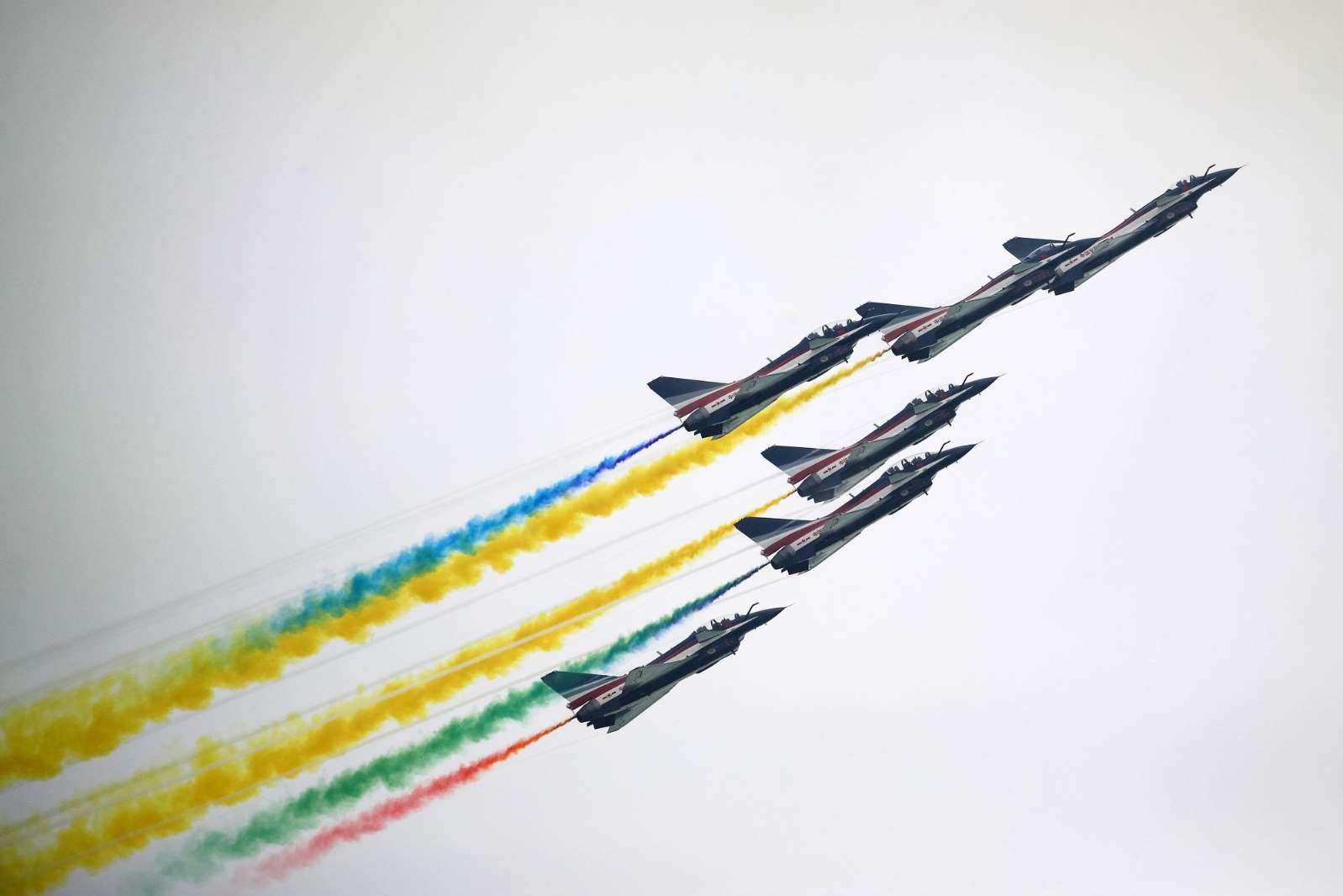China Generals Urge More Spending for U.S. Conflict ‘Trap’

China must boost military spending to prepare for a possible confrontation with the U.S., top generals said, in an unusual acknowledgment of the risk of a clash between the world’s two largest economies.
The two generals -- members of the Central Military Commission led by President Xi Jinping -- made the comments during the annual national legislative session in Beijing. CMC Vice Chairman Xu Qiliang, China’s top uniformed officer, said the country needed to brace for a “Thucydides Trap,” an inevitable conflict between a rising power and an established one.
“Facing the ‘Thucydides Trap’ and border disturbances, the military must step up its efforts to improve its capabilities,” Xu said Friday, although the transcript wasn’t released until later. “The most important thing is internal unity and cohesion and improvement of overall capabilities. If you are strong, you will have long-term stability, as well as invincibility.”
Xu’s reference to “border disturbances” may be an allusion to China’s deadly clash with India last year, as well as territorial disputes in the South and East China seas. Chinese Defense Minister Wei Fenghe, who also sits on the CMC, said separately that “containment and counter-containment will be the main tone of bilateral ties between China and U.S.”
Chinese president Xi Jinping said on Tuesday that the country’s security situation faces “relatively big instability and uncertainty” at a group discussion during the legislative session, without elaborating, state broadcaster CCTV reported. He urged the army to coordinate priorities of military construction and war preparedness, and to get ready to “face up to various kinds of complexities and difficulties at any time.”
The remarks represented a rare admission from China about the growing risk of a confrontation with the U.S. after escalating disputes under President Donald Trump over everything from trade to Taiwan. Chinese leaders have repeatedly played down the risk a Thucydides Trap, with Xi saying during 2015 a visit to the U.S. that such a conflict wasn’t inevitable so long as countries avoided strategic miscalculations.
A national security strategy document released last week by U.S. President Joe Biden affirmed Trump’s designation of China as a “strategic competitor.” The strategy seeks to put less emphasis on using the American military to resolve conflicts and pledges to work with “like-minded countries” to forge a common approach to Beijing.
The “Thucydides Trap” refers to ancient Greek historian Thucydides’ explanation of the Peloponnesian War as an inevitable clash between a rising Athens and the established regional power, Sparta. The term was coined by Graham Allison, a professor at Harvard University’s Kennedy School of Government, who argued that China would threaten to displace U.S. influence, possibly resulting in an unhealthy rivalry or armed conflict.
Xi has vowed to make China a great military power, pledging to complete the modernization of the armed forces by 2035 and build a world-class military capable of winning wars across all theaters by 2050. China projected defense spending growth of 6.8% this year, up from 6.6% last year, the slowest pace in three decades.
Wei, the defense minister, said struggles over containment efforts would “last throughout the whole process of China’s national rejuvenation.”
“China’s national security has entered a phase of high risks. Tasks are mounting for the defense sector and military,” Wei said, adding China “must comprehensively strengthen training and preparedness for war and improve the strategic capability to win over strong enemies.”
Photo: Bloomberg The People's Liberation Army Air Force (PLAAF) August 1st aerobatics team perform maneuvers during a media preview day at the Singapore Airshow held at the Changi Exhibition Centre in Singapore, on Sunday, Feb. 9, 2020. Lockheed Martin Corp and Raytheon Co. are among more than 70 international aviation companies withdrawing from Asia's largest aerospace and defense conference in Singapore as concerns mount over the coronavirus outbreak.
Link: China Generals Urge More Spending for U.S. Conflict ‘Trap’ (msn.com)











